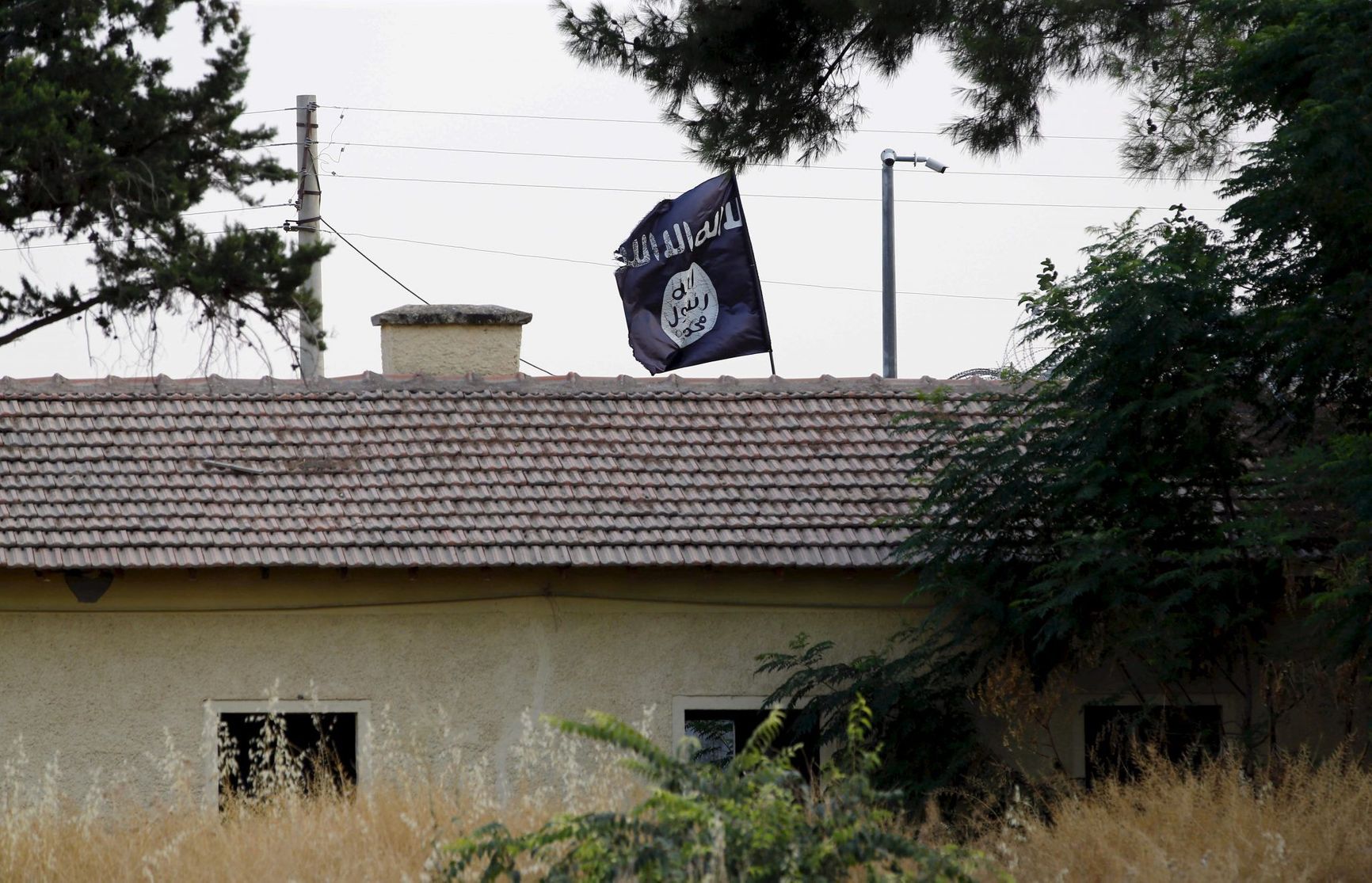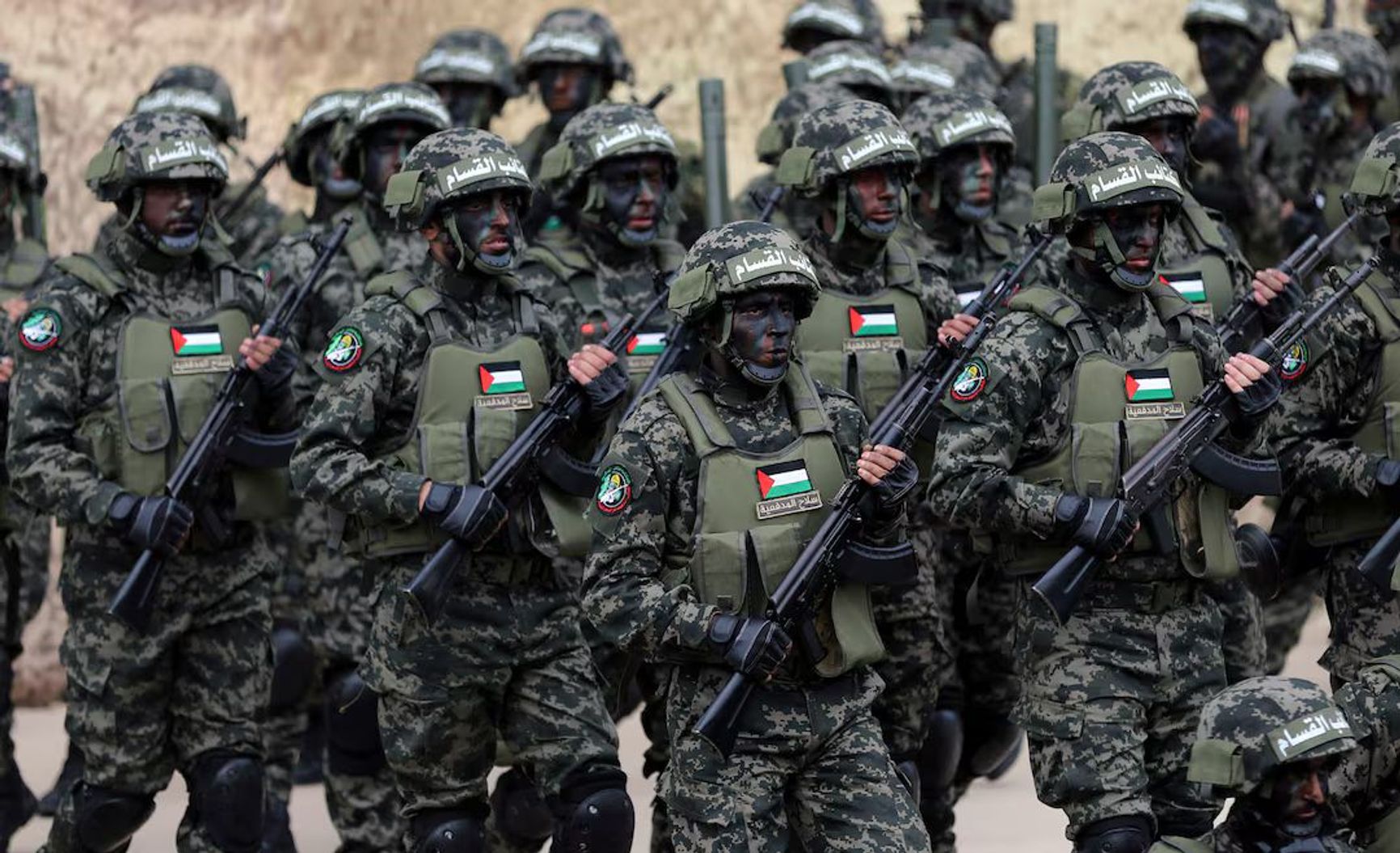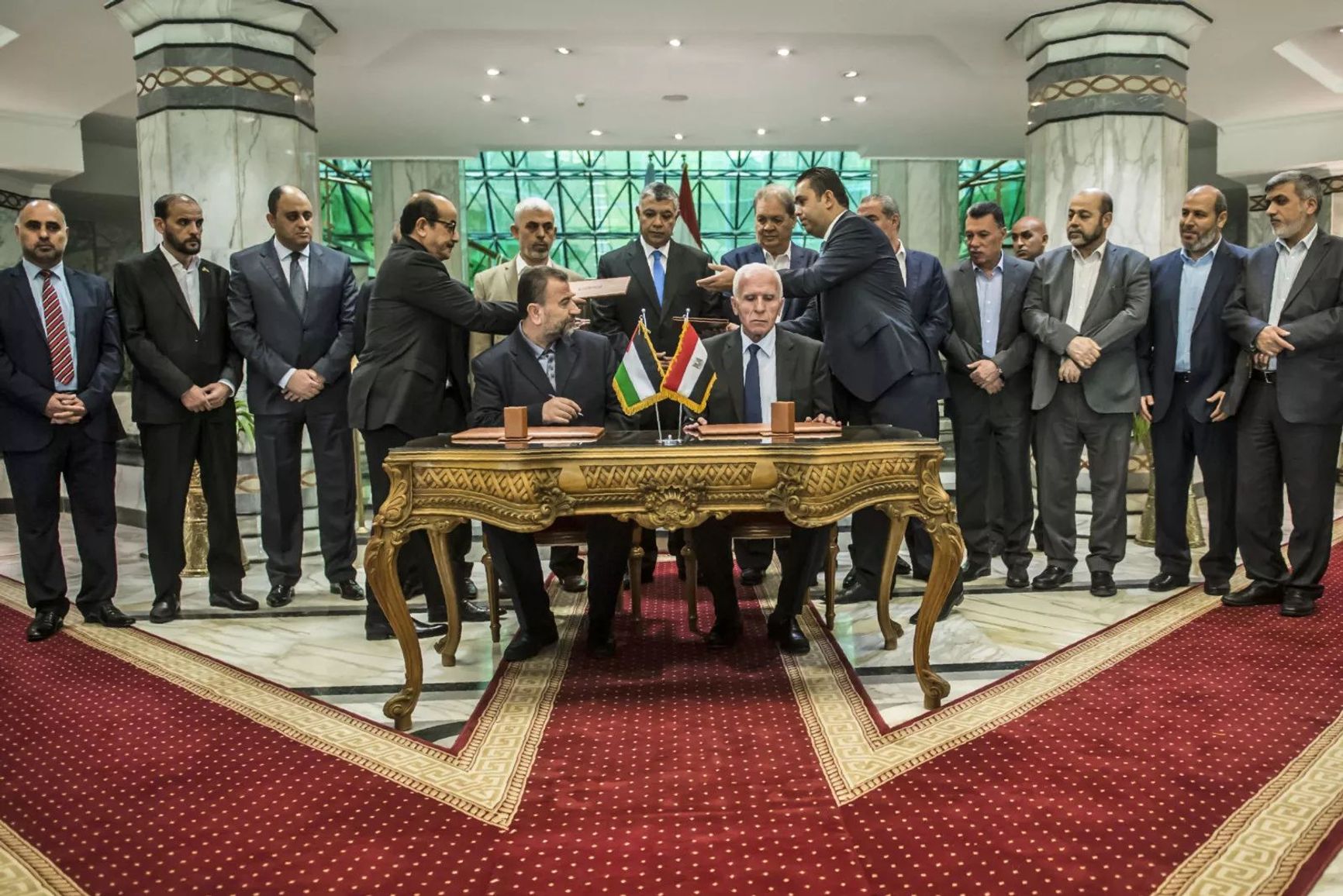

In May, a Russian programmer was sentenced to more than 5 years in prison in the Netherlands for creating the crypto mixer Tornado Cash. According to the court, the platform helped launder a staggering $12 billion for terrorist purposes. In recent years, cryptocurrency has emerged as a key financial tool for terrorist groups, and terrorism itself increasingly resembles a business project, complete with sponsors, earnings strategies, quasi-tax systems, investments, and a global financial network. Contrary to stereotypes, terrorists are not impoverished savages — university-educated individuals are in high demand within these organizations.
Content
Main expenses: weapons, salaries, and pensions
Voluntary (and not so voluntary) sponsors
Investments in terror
Drugs, oil, money laundering, and hostile takeovers
Cracking down on crypto exchanges
Main expenses: weapons, salaries, and pensions
Hundreds of millions, sometimes billions, of dollars flow through terrorist organizations annually. These sums might seem excessive for relatively small extremist groups, but terrorism is far from an inexpensive enterprise. Apart from the obvious — expenses on equipment and weaponry, which cost millions of dollars each year — the largest expenditure for terrorist groups is the salaries of their members. In addition to regular compensation, terrorists may also receive various benefits, including bonuses and pensions. For instance, the Palestinian Authority's “Martyrs Fund,” associated with terrorist groups like Hamas, provides monthly payments to “all who were imprisoned due to their participation in the struggle against the occupation,” and it does so both during incarceration and after release. It also makes payments to the families of those killed in the “struggle against the occupation.”
In addition to salaries, terrorists receive also receive various benefits, including bonuses and pensions
Hamas terrorists earn an average of $375 per month during imprisonment, comparable to the official average salary in Gaza. However, they can earn up to $3,000 per month, depending on the duration of imprisonment and the severity of the crime. Annually, the Palestinian Authority spends hundreds of millions of dollars on these payments, sometimes nearly 10% of its total budget.
In Hezbollah, terrorists can earn around $1,000 a month, while the median monthly income in Lebanon is only $120. A similar pattern is observed in territories controlled by the Islamic State (ISIS), where rank-and-file fighters earn twice as much as soldiers in the Syrian army. Doctors who pledge allegiance to (and then go to work for) the terrorists earn nearly $1,000 a month, seven times the income of state doctors. Overall, ISIS's monthly salary expenses are estimated at $5–$10 million.
In Hezbollah, terrorists can earn around $1,000 a month, while the median monthly income in Lebanon is only $120
The high salaries are justified not only by the significant risks “employees” take, but also by the overall qualifications of the terrorists. Researchers from Princeton University found that 87% of terrorists were middle class or above in their country of origin, 96% had at least a secondary education, and more than half were university graduates.

The flag of the Islamic State over the customs office at the Syrian border crossing of Jarablus, August 1, 2015.
Source: Murad Sezer / Reuters
Economist Alan Krueger explains that terrorism could be seen as an extremely radical and violent form of political engagement. More educated individuals from privileged backgrounds are more likely to engage in politics, which requires a minimal level of interest, experience, and concern for social issues.
Moreover, terrorist groups prefer to recruit more educated, mature, and experienced people, as they make for more effective killers and are better able to blend into foreign environments in order to carry out terrorist acts.
Voluntary (and not so voluntary) sponsors
According to researchers, governments are the main sponsors of terrorists, secretly allocating hundreds of millions of dollars to support such organizations for political purposes. By backing proxy forces, these countries can pursue their agendas indirectly, maintaining plausible deniability when these groups engage in violence.
Some states have openly admitted to supporting terrorists, later calling it a mistake. For example, the Pakistani government acknowledged creating and fostering terrorist groups as a tool to achieve tactical goals, such as waging a proxy war with India over the strategically important territory of Kashmir. Iran is particularly active in this area, using mercenaries to intervene in civil wars in Syria and Iraq in an effort to counter American interests. Alongside Hamas, the Palestinian Islamic Jihad, and the Lebanese group Hezbollah, Iran forms a self-described “axis of resistance” against Israel.
Tehran annually provides Hamas with around $350 million. Qatar contributes several hundred million more. Hezbollah receives almost $700 million in state support from Iran. In February, a data leak revealed that for 2024, Iran allocated more than $15 billion to support its own Quds Force, a branch of the Iranian Revolutionary Guard Corps (IRGC) recognized by many countries as a terrorist group in many countries. The sum is larger than the military budgets of small countries like Angola and Lithuania. Other Middle Eastern states, such as Qatar and Turkey, are also accused of supporting terrorist groups to pursue their goals.

Militants on the 31st anniversary of the founding of Hamas, Gaza, December 16, 2018.
Photo: Ibraheem Abu Mustafa / Reuters
But support for terrorists is not just a Middle Eastern phenomenon. For instance, China has been accused of supporting rebel groups in India and Myanmar that conduct their struggle using terrorist methods. Critics have charged China with supplying weapons to the recognized terrorist group “Arakan Army” with the aim of weakening Indian influence in Myanmar, a country that is of strategic interest to both India and China. Beijing is investing in gas pipelines and roads that will connect its southern Yunnan province with the Bay of Bengal, thereby allowing shipments of goods to bypass the Strait of Malacca.
Terrorist groups can also generate funds independently. When a group controls a territory the way the Taliban controls much of Afghanistan, it simply collects taxes. The Taliban had established a tax collection system even before taking power in Afghanistan in August 2021. This system includes the Ushr (a crop tax applied to both legal and illegal crops, such as opium), transportation taxes (similar to customs duties), various business taxes (essentially a form of extortion), and taxes on humanitarian aid.
ISIS collects an estimated $800 million annually in a similar manner. For instance, in Africa, where ISIS has expanded to levels comparable to its presence in the Middle East, the group forced a major market in Somalia's capital to shut down due to its exorbitant taxes on local entrepreneurs. In another Somalian city, Bosaso, terrorists burned down a local company's building for its refusal to pay them $500,000.
Investments in terror
Donations from ideological supporters worldwide represent another financial stream for terrorists. Recently, such donations increasingly come in the form of cryptocurrency, which better ensures anonymity. Over the past three years, Hamas has received $41 million worth of cryptocurrency, and the Palestinian Islamic Jihad has received $93 million. Fundraising campaigns for ISIS, often disguised as aid for terrorists being held in detention camps, emphasize the harsh conditions in an attempt to stimulate donations.
Situations in which legitimate humanitarian concerns intertwine with extremist ideology and a lack of accountability create significant analytical and ethical challenges. However, overseers of some “humanitarian” campaigns privately admit that funds may not go to humanitarian aid, but to support “brothers fighting for others' freedom.”
Cryptocurrency is not the only asset terrorists exploit to their financial benefit. These groups often also manage full-fledged investment portfolios ranging from several hundred million to over one billion dollars. Through complex networks of affiliated persons, each responsible for managing shares in companies across Arab countries, the funds generate tens of millions of dollars in annual profits.
Well-managed investment portfolios bring terrorists tens of millions of dollars annually
Hamas has used its specialized personnel to establish such companies in the Middle East, where authorities provide at least tacit approval. The Hamas network encompasses enterprises in the UAE, Turkey, Algeria, Saudi Arabia, and Sudan, Newsweek investigators found, with the group expanding into Western Europe. Specifically, a Yemeni entrepreneur linked to Hamas owns a stake in a real estate company in the UAE, which owns an office building worth $150 million. He also owns 20% of the shares of a dummy company for Hamas in Saudi Arabia and serves on the board of another Sudanese company. Additionally, he holds significant positions in four other major construction companies in the Middle East.

The new deputy leader of Hamas, Salah al-Aruri (sitting on the left), and Azzam al-Ahmad of Fatah (sitting on the right) sign a reconciliation agreement, Cairo, October 12, 2017.
Photo: Khaled Desouki / AFP
The Turkish construction company Trend GYO is linked to terrorists, with its CEO, Amer Kamal Sharif Alshawa, being a Hamas financier. Moreover, its shares are publicly traded, with a total market capitalization of over a billion dollars, 75% of which, according to the U.S. Treasury Department, are owned by Hamas.
Representatives of other groups, such as Hezbollah, have claimed that income from investment portfolios is at least close to being their primary source of their funding.
Drugs, oil, money laundering, and hostile takeovers
Terrorists also make money through straightforward criminal activities, with each group specializing in a different sphere of illicit enterprise. Hezbollah excels in drug trafficking. In the 1980s, one of the group's clerics issued a fatwa approving the sale of drugs to non-Muslims in the West. Over the past decades, Hezbollah has built a well-oiled drug trafficking machine in Latin America, laundering billions of dollars each year through Europe and Africa.
In the 1980s, one of the group's clerics issued a fatwa approving the sale of drugs to non-Muslims
One method of laundering this money is by buying luxury items: expensive cars, watches, and artworks, which are then shipped from Europe to Lebanon or Africa and sold for cash. The annual amount of money laundered by Hezbollah through Europe is estimated at 25 million euros. In 2016, the group bought Rolex and Patek Philippe watches worth approximately 14 million euros from a single store in Germany. Some watches were sent by boat to Lebanon, while others were transported by couriers through Beirut airport, assisted by customs and security personnel. In Lebanon, the watches were resold, and the proceeds funded new cocaine shipments from Colombia.
Hezbollah's annual drug trade revenue is estimated at $300 million, though the actual amount of its overall illicit income is several times higher.
Western sanctions and the vagaries of the oil market are reducing Tehran's capacity to finance its terrorist proxies, potentially spurring Hezbollah's imperative to secure its own sources of funding. The organization leverages its primary asset: an informal network of influential families dispersed globally and deeply entrenched in the economic and criminal landscapes across the globe, particularly in Latin America.
Economic strategies are in a constant state of evolution. Just a few years ago, ISIS amassed substantial revenues from selling oil extracted from territories under its control. According to energy analysts in the UAE, in 2014, ISIS was raking in up to $3 million per day from oil extraction. However, by late 2015, frequent airstrikes on oil facilities began to impact its operations, reducing daily revenues to just $700 thousand by March 2016. After its territorial losses in Syria and Iraq, oil ceased to be a significant revenue stream for the terrorist group.
The organizational structure of ISIS has undergone significant transformations. Once concentrated in Syria and Iraq, the group has fragmented into multiple independent entities spreading out worldwide. Each entity adopts its own earning strategies, ranging from traditional methods such as extortion, kidnappings, robberies, and drug trafficking, to location-specific ventures.
Recognizing the importance of scalability and diversification, ISIS's central leadership began treating its branches as if they were startups, providing them with seed capital and guidance while expecting dividends once financial independence was achieved.
One of ISIS's offshoots, “Wilayat Khorasan,” which claimed responsibility for the Crocus City Hall attack that killed 145 concertgoers outside Moscow this past March, received an initial $100 million from the central office in its inaugural year. Furthermore, the ISIS faction in Somalia regularly channels tens of thousands of dollars back to the Middle East via cryptocurrency each month. “Wilayat Khorasan” diverted ISIS's focus away from oil, prioritizing the seizure of areas rich in talc and chromite mines. By mid-2016, it assumed direct control over mining operations, departing from the previous taxation model employed by the Taliban.
Cracking down on crypto exchanges
To effectively stem the flow of funds, global collaboration between governments and the private sector is imperative. However, such an approach presents challenges in corrupt nations, where regulators themselves may benefit from laundering terrorist funds. Despite existing prohibitions and sanctions, loopholes persist, granting terrorists access to financial and arms markets. In response, the United Nations, alongside blockchain analytics experts from the private sector, is developing technologies to aid authorities in identifying and halting cryptocurrency transactions associated with terrorism. Contrary to popular belief, cryptocurrency transactions are not anonymous — every transaction is logged on the blockchain, enabling traceability of funds down to the last cent in any wallet. Establishing ownership of these wallets is paramount, underscoring the need for increased regulation of private cryptocurrency firms.
Recent efforts have yielded notable successes in confiscating terrorist-linked cryptocurrency. For instance, Israel announced the seizure of over $17 million in cryptocurrency tied to Hezbollah and the Iranian Quds Force. Additionally, Tether, a cryptocurrency firm, reported blocking nearly one million dollars kept in terrorist-associated wallets. While these amounts pale in comparison to the terrorist groups’ overall earnings, governments are at least gradually enhancing their capacity to monitor transactions within the crypto market.